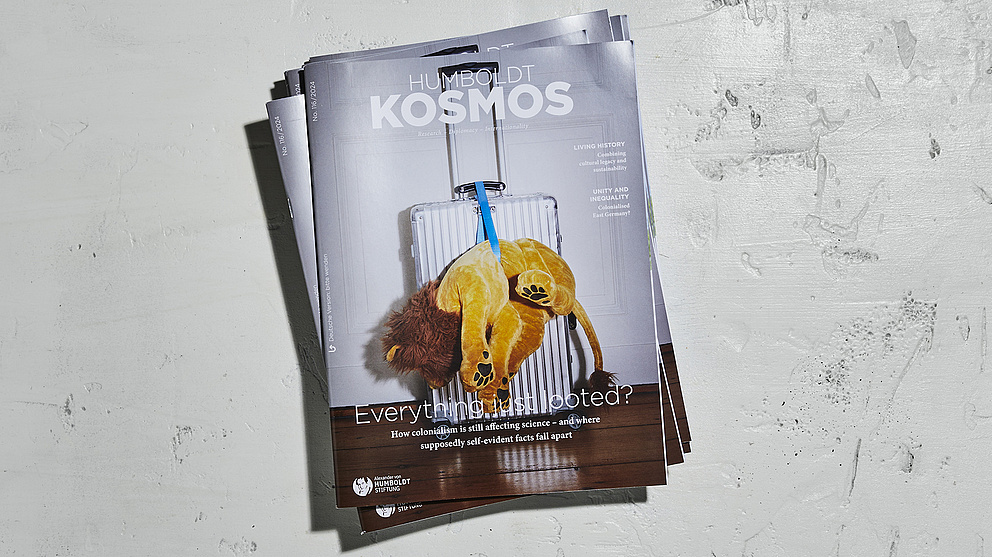

Contact
Press, Communications and Marketing
Tel.: +49 228 833-144
Fax: +49 228 833-441
presse[at]avh.de
It is a sad fact: the conditions for researchers worldwide are still plagued by inequality. This is not only obvious when we consider researchers’ immediate living and working conditions, such as research funding, access to data sources or salaries; where you live, your origins, gender and social status all influence the way academic careers develop – starting with the fundamental right to education. In the new edition of its magazine Humboldt Kosmos, the Alexander von Humboldt Foundation examines how these inequalities have been shaped by history and how far back they go.
The articles in this new issue explore how colonialism is still affecting science and where supposedly self-evident aspects of global academic life are starting to crumble. We address the issue of the role played by (western/European) science in the colonial appropriation of Indigenous and local knowledge. And the question of how to create equal opportunities and establish a fair science system. Some of the Foundation’s sponsorship recipients report on how their research is helping to reappraise colonial history in Europe and the world, and point the way forward to a common, historically sensitive future. Kosmos also takes a critical look at the Foundation’s eponym, Alexander von Humboldt, and his part in the colonialisation of Central and South America.
The magazine Humboldt Kosmos is published in German and English and has a print run of 44,000 copies. It reaches the Foundation’s network of more than 30,000 sponsorship recipients in over 140 countries worldwide as well as many collaborative partners in Germany. To promote world-spanning research collaborations on an even playing field in order to address global challenges with local expertise is also one of the objectives of the Humboldt Foundation’s new Strategy.
Every year, the Alexander von Humboldt Foundation enables more than 2,000 researchers from all over the world to spend time conducting research in Germany. The Foundation maintains an interdisciplinary network of well over 30,000 Humboldtians in more than 140 countries around the world – including 63 Nobel Prize winners.
